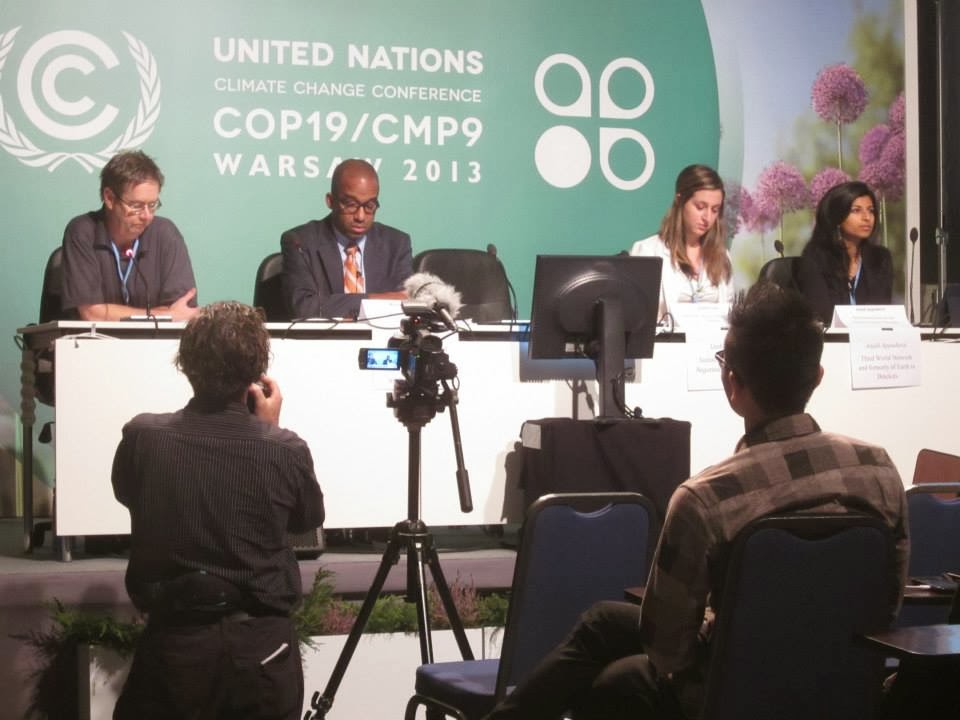- Public Policy
- Leadership
- Funding
- News & Events
- About the Center
Back to Top Nav
Back to Top Nav
Back to Top Nav
Back to Top Nav
 |
| Leehi Yona (second from right) at a press conference during the COP19 United Nations climate conference in Warsaw. |
This opportunity was funded by the Rockefeller Mini-Grants Program. For more information, please click here.
My experience at the United Nations Framework Convention on Climate Change conference (UNFCCC COP19) in Warsaw, Poland, was indescribable. I'm deeply interested in the intersectionality of climate change from social, political, scientific, and health-related perspectives, and being given the opportunity to attend a series of international negotiations helped ground my understanding of the policies surrounding these issues.
While at the conference in Warsaw, I was able to meet with youth from all corners of the world who are all actively engaged in making their communities better, as well as key governmental negotiators from the United States and elsewhere who were able to provide insight on the challenges facing real, binding, ambitious action on climate change. Throughout those two weeks, I learned a lot about what it would take for the U.S. to more ambitiously act on climate change, and I've realized that much action will need to come from a domestic standpoint on greenhouse emissions reductions (some of which, through the Environmental Protection Agency, can be taken without the approval of Congress).
Additionally, I also spoke at various occasions on behalf of youth, and helped organize a panel with other American and British students on the importance of fossil fuel divestment in impacting these international talks. Needless to say, the experience was one that altered the perspectives from which I saw environmental issues. The reality of climate change is that oftentimes, action will not come at the international level without clear grassroots and domestic action, a process in which public policy plays an integral role.
--Leehi Yona '16, Guest Writer